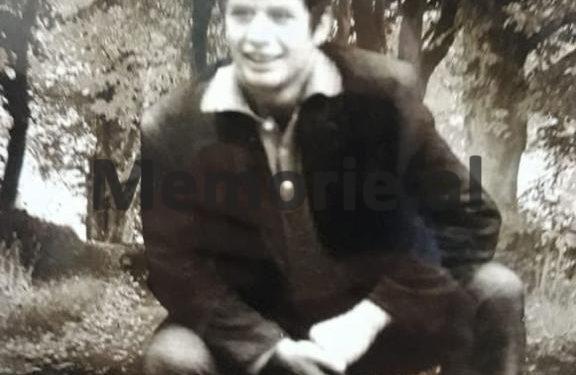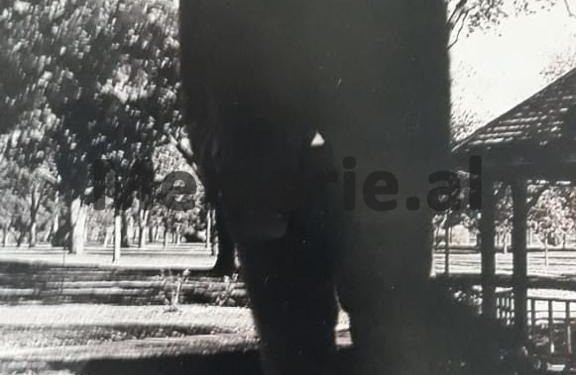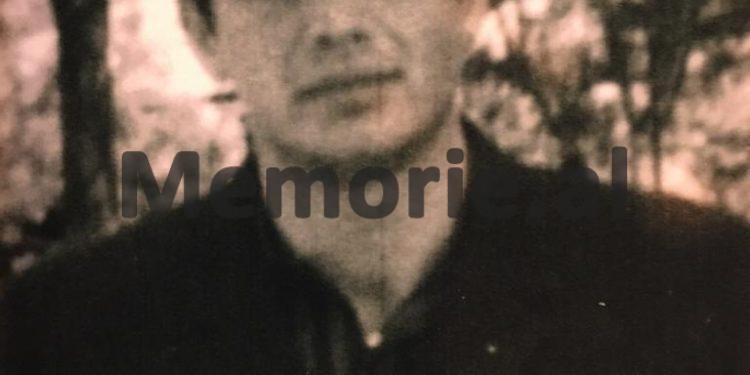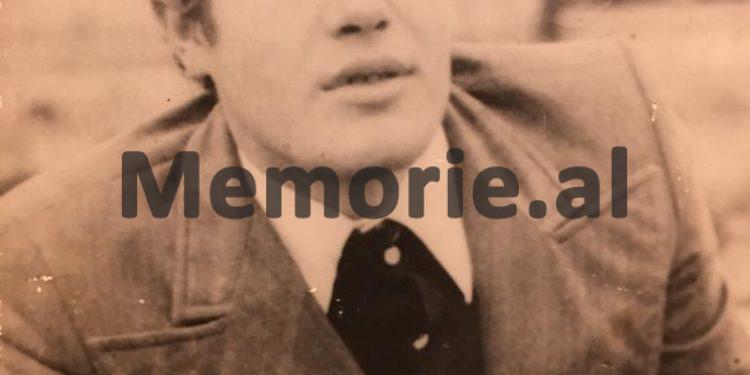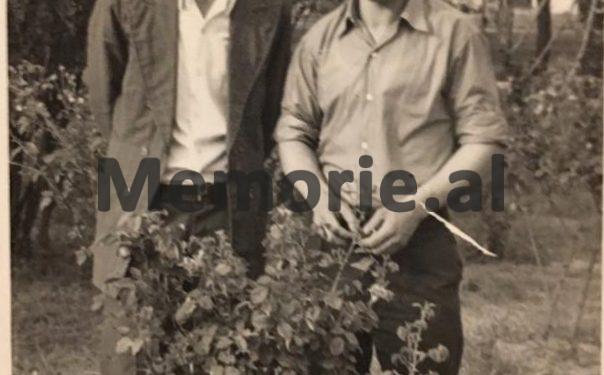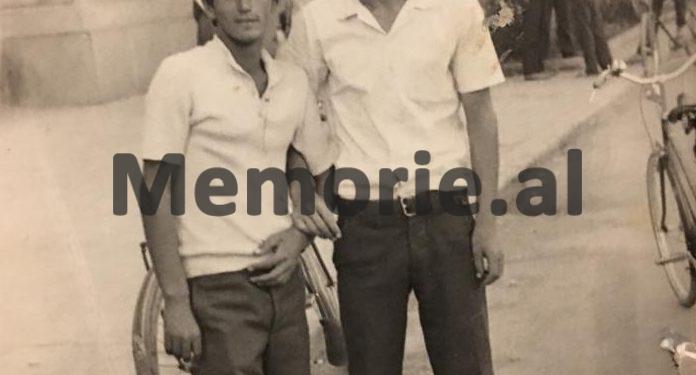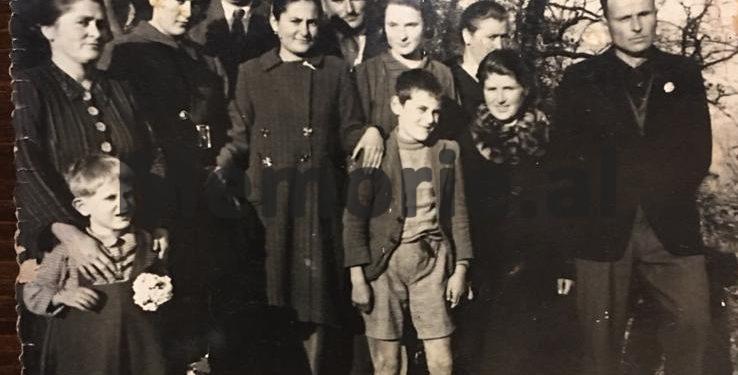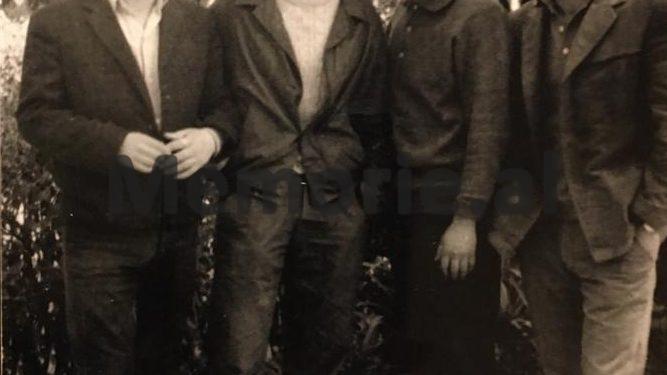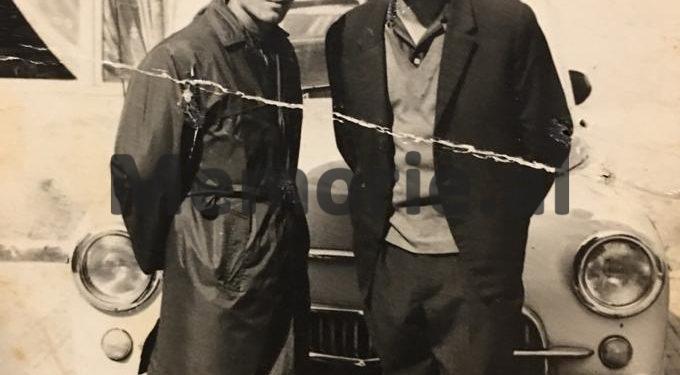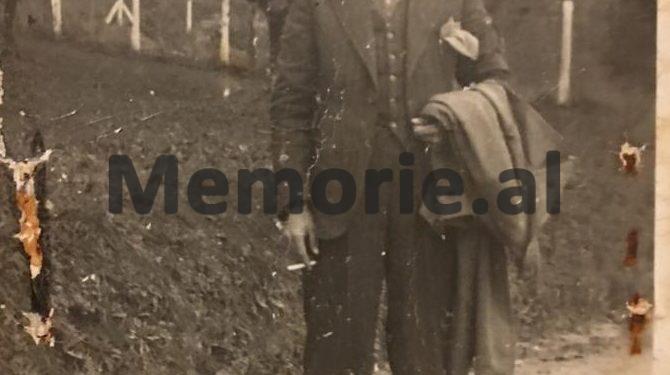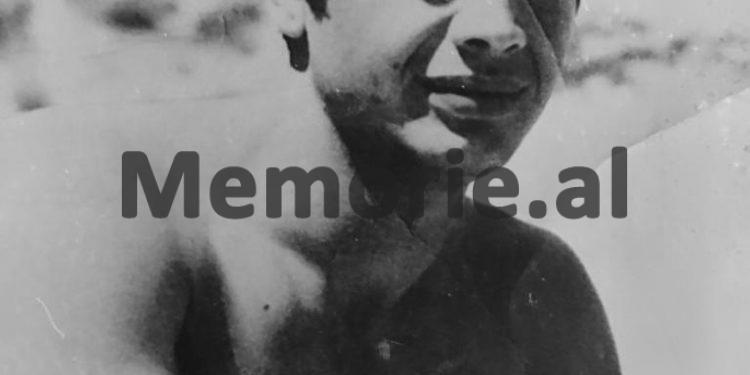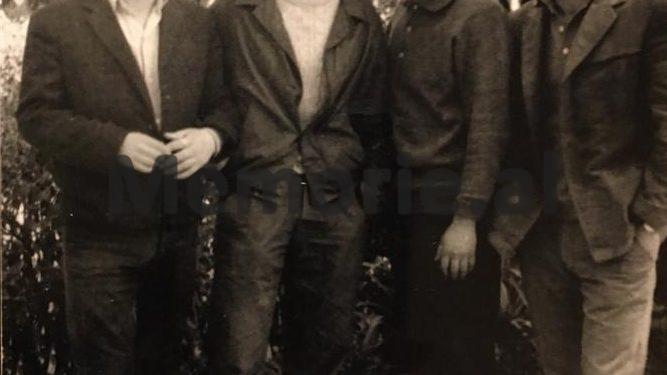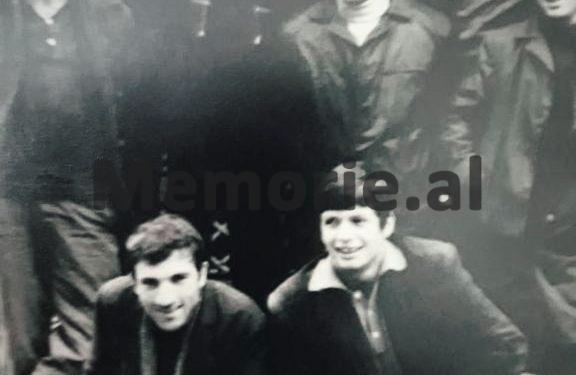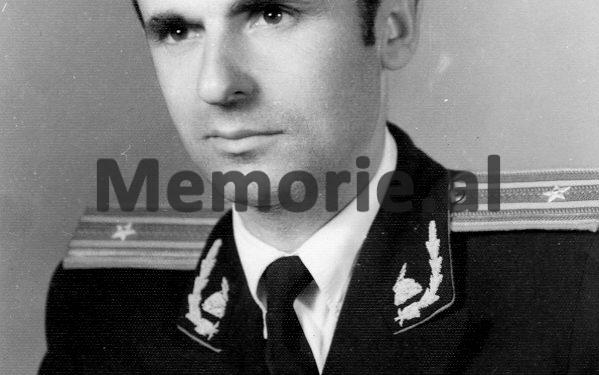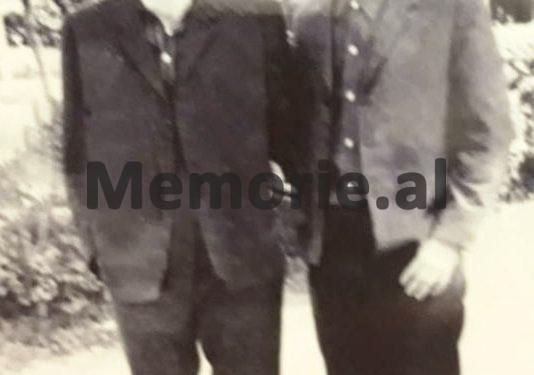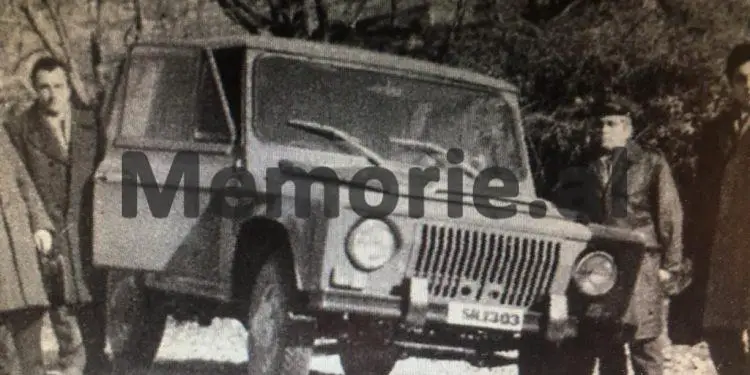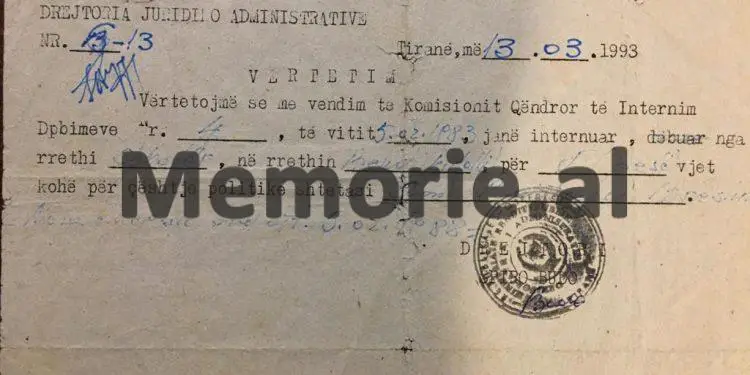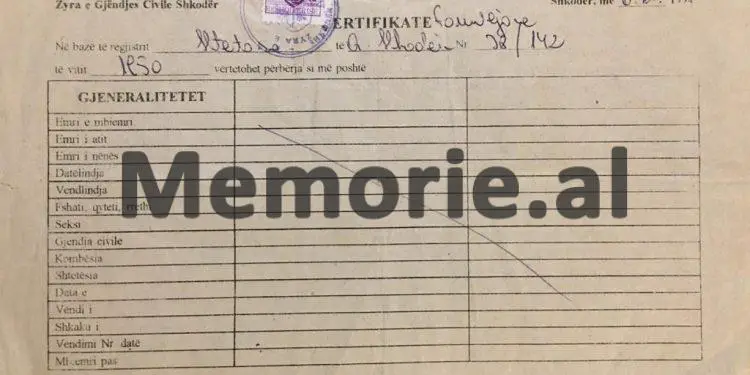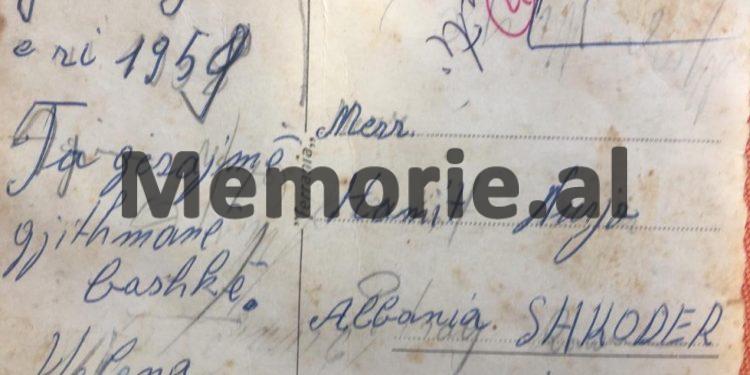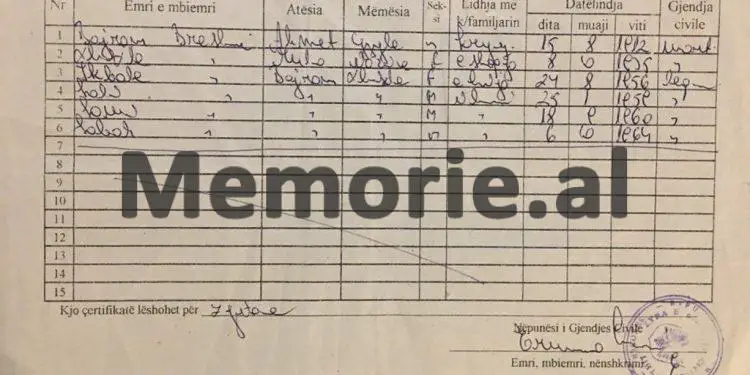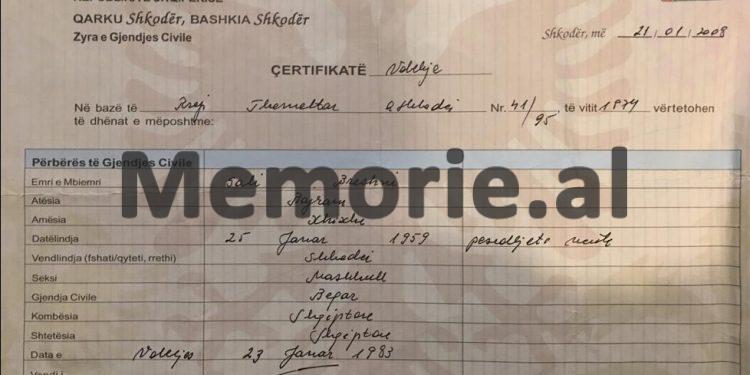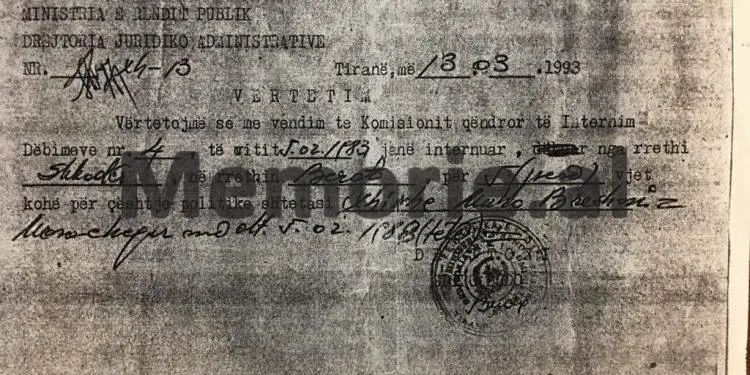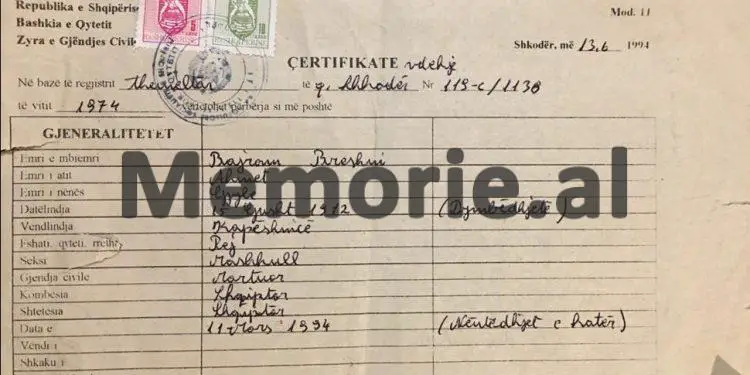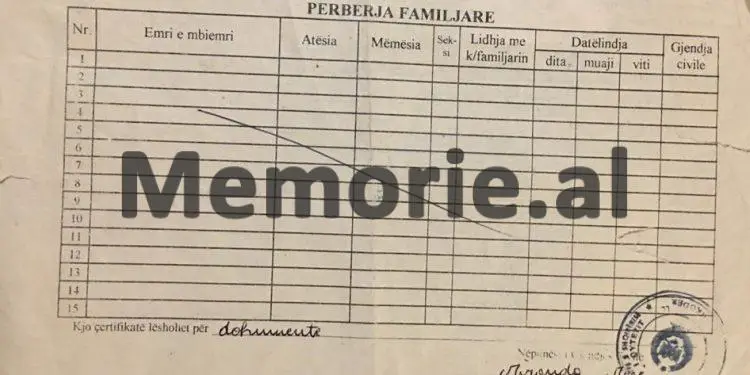Dashnor Kaloçi
Memorie.al publishes the unknown story that took place in the city of Shkodra on January 23, 1983, when two young men, Fatmir Gusha and Sali Breshni, after abducting three Kalashnikov automatic weapons and several cartridges, in one of the wards was located in the village of Shtoj, they headed towards the city unscathed from the man to the Military Branch, where after being dictated and clashed with an officer, they started firing in the air as a sign of pressure.
Their departure, to go to the Internal Affairs Branch, was spotted by the police forces and they were forced to stay in an alley behind the Pedagogical Institute, “Luigj Gurakuqi”, where they entered and were locked in the house of the Hysej family, where they were surrounded by numerous forces of the Shkodra Police and the Military Division, as well as Special Forces (Ward 326) coming from Tirana.
The whole event, according to the rare testimony of the former Chairman of the Internal Affairs Branch of the city of Shkodra, Përparim Xhoxhaj, is published for the first time by Memorie.al, since from the evening of January 23, 1983 until today, everything has remained silent, covering with mystery the event that shook not only the city of Shkodra, but also the top leadership in Tirana, after Ramiz Alia urgently sent to Shkodra the Minister of Internal Affairs, Hekuran Isai, the General Director of the State Police , Kasem Kaçi and all night they were surrounded and until the morning, when they were physically eliminated, demolishing the house with a tank and shooting them with grenades, Ramiz was in contact with them, giving orders, opinions and suggestions .
Who was Fatmir Gusha who in the city of Shkodra was also known by the nickname, “Caf Susta”, and Sali Breshni, what problems did they and their families have with the communist regime in power and what was their goal after taking up arms in the ward and why they refused to surrender even after the police forces and personally, the General Director Kasem Kaçi, sent Fatmir’s 13-year-old son, who was being taught by the Branch officers, urging his father to be dosed… ?!
Testimony of Përparim Xhoxhaj, and the Gusha family, Mit’hati (Fatmir’s brother), Fatmir’s son Bardh, who was taken hostage by the police for “negotiations”, with his father, as well as some friends of “Caf Susta”, with their stories for the first-time shed light on this event, for 37 years their bones have not yet been found even though family members have not stopped searching?!
It was the evening of January 23, 1983, when the calm in the city of Shkodra was disturbed by several gunshots and sirens of police vehicles which were heading towards the city center, in the area near the Pedagogical Institute “Luigj Gurakuqi”. These caused panic and fear throughout the city, where it was said that: “an armed gang had come from Yugoslavia, going to the center of the city without being noticed by anyone, where they were surrounded by police, army and forces. Specials from Tirana, who were fighting against them and they did not surrender”?!
All these, as well as various versions of what was happening that evening of January 23, 1983 in the city of Shkodra, would continue to be “bought” in parallel with what was really happening right behind the Pedagogical Institute at home. of the Hysejs, the truth would be known only on the morning of January 24, shortly after the guns had ceased and the police sirens were no longer heard.
That morning the news spread throughout Shkodra that the two people who had been trapped in the house of the Hysejs had fought all night against the police forces and those of the army that kept them surrounded, had been Fatmir Gusha, (otherwise known by the nickname Caf Susta) and Sali Breshni, a friend of his. After they refused to surrender, they were physically eliminated by grenades and a small tank of the Shkodra Division, destroyed their house and trapped them inside.
Regarding this event that took place 37 years ago in the city of Shkodra, which was kept secret by the communist regime and has never been made public, Memoria.al publishes the first part of the interview with the former Chairman of the Internal Affairs Branch of Shkodra, Mr. Përparim Xhoxhaj, which he gave us a few years ago.
follows from the previous number
Mr. Xhoxhaj, how did the event continue where Fatmir Gusha and Sali Breshni were surrounded?
While with the forces of the Police, the State Security, the Army of the Shkodra Division where the reservists and the special ones of the Rapid Intervention (ward 326) were, we kept the house of the Hysajs surrounded, Fatmir and Sali continued to shoot incessantly from house windows. From the position they were in, it was almost impossible for our special forces to enter the house, as they would be killed.
Was it attempted to negotiate, through mediation or through a megaphone, as we have seen later in other events that have taken place?
Of course, from the beginning we tried to negotiate with them, urging them to surrender, but they did not even want to know, on the contrary, they fired more. I myself approached several times near, in a corner where the radius of their shooting did not catch me, and I called to Cafi, (without megaphone, that we did not have, but verbally shouting), telling him to surrender, that he did not would have consequences.
How did they react, after the calls from you?
They did not give up and fired incessantly. Under these circumstances, having no other choice, we decided to take Fatmir’s wife, along with their young child, and send her inside the house, where she would beg him to surrender. We decided so, not only because the other one, Saliu, was a young and unmarried boy, but because we knew that the main Family was there.
And you carried out that plan, so you took his wife and son, to bring him there to the scene?
Yes, we did. We sent people, we took her to her house, she was brought there. We put him inside the house together with the little boy. She and her son stayed inside for about 20 minutes and then went outside. She told us that Cafi and his friend refuse to surrender.
For the introduction of Fatmir’s wife inside the house, did you consult with Tirana, or was it just your initiative?
It was our initiative, without asking Tirana. A few minutes after Caf’s wife left the house, Ramiz Alia called me on the phone and said: “You will not do well to bring the woman into the house, as they can keep her inside and what will you do next pastaj, you will kill her …, Will you fight with children…”?!
After failing to negotiate and bring Caf’s wife home, what did you do next?
The idea was thrown to drop a chemical bomb near the house, so that they would be paralyzed. We were offered this solution by the soldiers of the Shkodra Division, a specialist in chemical weapons, I asked the chemical officer: what consequences would the two besieged have after dropping the chemical bomb?
How did he respond?
The officer, who seemed a little relieved, said to me, “There is nothing wrong with those who are trapped, because they are inside, but here outside, they make a name for themselves.” After that we decided to give up dropping the chemical bomb and decided to put the diaagac (small armored tank) from the tank ward.
And you brought it?!
Yes, that there was no other way out and so it was. After midnight, if I am not mistaken from 3 o’clock at night, we introduced the diagac, which approached near the house, broke down a perimeter wall and part of the house and there remained that the engine was turned off and no longer started.
What happened after that, how did you do it?
While Diagaçi remained there, Cafi and Saliu fired incessantly. After this attempt by Diagac failed, the forces coming from Tirana that accompanied Kasem Kaçi, by his order, approached the windows of the house in a radius where their shooting did not catch them and threw two grenades inside the house. After the grenades were dropped, the gunshots of Sali and Caf were no longer heard, which indicated that they had either been killed or wounded. After this was clarified by the observations made from the windows, the police forces went inside and saw that they were wounded and bleeding from the shells of the grenades.
How was it done after that?
Immediately, the police forces took the two of them, both wounded, and sent them towards the city hospital, where a group of doctors were on standby at the moment of the event (at 19:30 in the evening)., led by the talented and very humane doctor, Ali Spahia. But, unfortunately, Sali Breshni died on the way without arriving at the hospital, while Caf Susta died as soon as he arrived at the operating room. This is how this tragic event ended at 5 o’clock in the morning of January 24, 1983, and they, Cafi and Sali, did not say a word about why they did it.
Was there a possibility that they would be caught alive and not killed?
To be honest to the end, they did not have to be killed, as we knew how much ammunition they had, counting the number of bullets and after running out of them, they had nothing to do and their capture would not it was difficult. And I was not in favor of throwing grenades, as the possibility of killing Caf and Sali was 100% certain.
What about the next day, was there a meeting to analyze what had happened?
Then he turned to me and said: ‘Could not those people have been killed?’ And I replied, “Yes, they could not have been killed. But the responsibility starts from the kidnapping of weapons in the Intelligence ward and in that ward not only I who had no right to enter, but neither the commander nor the commissar of the Shkodra Division. You can enter that Intelligence unit only with the permission of the Chief of General Staff of the Army and this is sanctioned by the High Council of Defense. But it’s good that this event ended with so much, as to get a gun is not very difficult.
Going back to the event, what happened to their bodies, as family members told us that even today they do not know where they buried their bodies?
For us as an Internal Affairs Branch, with their murder, ie Cafit and Saliu, the work was over, and further with that event was dealt with the Investigation, Prosecution and other specialized bodies, which were detached and did not depend on us.
What about you personally, unofficially you have not learned and have no knowledge of where their bodies are buried?
I know that the bodies of Caf and Sali were buried inside the city cemetery, of course without identification plates, because according to the laws of that time, the bodies of those killed by the police or the army, which according to subsequent investigation and relevant expertise, resulted in crimes against the state, were not given to family members.
Given the fact that you continued to remain as Chairman of the Internal Affairs Branch even after that event, can you tell us what was the real purpose of Caf Susta and Sali Breshni in that event, so what did they want to do?
As I said above, they arrived dead in the hospital without saying a word and officially their purpose was never learned. But in Shkodra there was a lot of talk about that event, giving all kinds of versions and people interpreted it according to what they thought or were interested in, drawing; no problem catholic, muslim, kosovar etc., etc.
Can you tell us anything concrete?
From what I have heard and about this it was believed more, is that: The family of Caf Susta, lived in a house (state apartment with two rooms and kitchen), from the center of Shkodra, which was very good not only as a position, but also in terms of abundant cubature and quality of construction of that palace. After the exile of Caf Susta’s family, the state gave this house to Sulejman Bushati, who at that time came to Shkodra as the First Secretary of the Party Committee and lived there with his family. And it is said that Caf Susta’s anger was with Sul Bushati, whom he saw not only as the man who had taken his house, but also as the cause of all the evils that befell him and his family and wanted to take revenge on him.
Did you know about the biographical problems that the two people who were killed had, namely Cafi and Sali. Or rather what were the relations of those families with the government of that time?
Yes, we definitely had. The Internal Affairs Branch through State Security knew everything. But we learned them after opening their files when we had to do the analysis about the event.
And what came out to you…?
I do not remember exactly that so many years have passed and we have had hundreds of files, I did not deal with them, but my subordinates who reported to me when our job required it. But since you are insisting and closing it here, as far as I remember, the Gusha family had some problems, from their father, Fatmir, (I do not remember his name), who worked in a wheelchair in the Municipal Enterprise, that he had been a gendarme and Bird. It was not only that, because at that time it turned out that a few years before that event took place, for Fatmir’s father, several unmasking meetings were held, in the enterprise or the Front organization in the neighborhood, about the work of a photo that had been attached to the cart his, picture of a leader…! I’m not sure about that either, as the documents have to be looked at and we cannot conjecture about such delicate things. And this became the cause that they were interned or imprisoned afterwards, almost all as a family, Fatmir with all the brothers…?
And this became the cause that they were interned or imprisoned afterwards, almost all as a family, Fatmir with all the brothers…?
Things have to be seen and judged by the time they happened. It was not just the biographical side, I was told that they, as brothers, were hot-tempered and had nothing to do with confronting the police. This, too, I think has affected their sentences in prisons and internments.
Is it true that Fatmir’s father was also the first cousin of the wife of one of the greatest political figures from Shkodra, who at that time had come to work in Tirana… ?!
I know who you are talking about, because we also knew about it, but we never discussed this, that is, the kinship they had.
What about that event…?
Of course it was rumored, but not officially and we as the Branch of Internal Affairs could not deal with that fact, ie the kinship of the Gusha family with that senior official. Because we depended on the Party Committee and were accountable there, and not the Party Committee to us. So in short, we could not analyze the Party, but the Party took us.
Thanking you once again for all your testimonies about this event, at the end of this interview, can you tell us a few words very briefly, about yourself, so how did your professional career go after that event?
I was born in the city of Berat in 1938, I graduated from the school of the Ministry of Interior in Sauk in 1960 and then the Faculty of Law. From 1980 to 1987 I served as Chairman of the Shkodra Branch of the Interior and then in the Ministry of Interior as a senior officer and advisor to several Interior Ministers. In 1991, on April 2, after the event where 4 people were killed (who are already Martyrs of the Fatherland), at 4 pm I was commanded and took over the post of President of the Shkodra Branch again, where I stayed only for three weeks. I did not want to come back to that position, but they asked me as a prayer, telling me that the people of Shkodra had and have respect for me, so I accepted to come with the condition that I return to Tirana as soon as the situation stabilizes. While after the ’90s, I worked as an advisor to several ministers of Internal Affairs and Prime Minister Ilir Meta until 2000. /Memorie.al
Mr. Xhoxhaj, thank you very much




